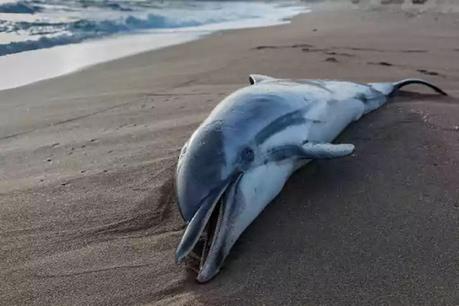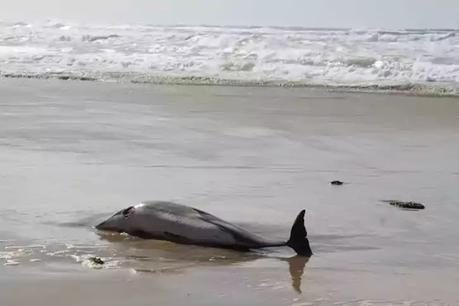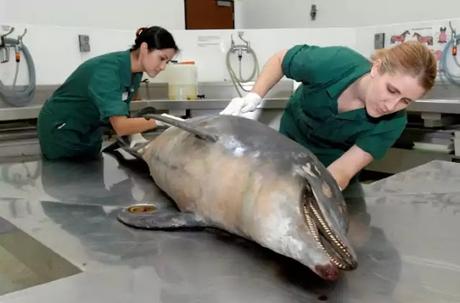
Photo Credit: Getty Images
The freshwater disease is linked to climate change and causes serious skin lesions on dolphins, which become infected and cause their death.
The ravages of climate change are increasingly visible and this time, one of the most popular marine mammals is suffering the consequences of sudden global warming:
This is a freshwater disease, a condition that causes skin dermatitis in dolphins with severe ulcerative lesions and, although not fatal by itself, makes wounds an easy target for the appearance of lethal bacteria.
The first known case of this disease occurred in 2005 in New Orleans, exactly after the impact of Hurricane Katrina. At that time, biologists noted that dozens of bottlenose dolphins died riddled with ulcerative lesions; however, they did not find the origin of the disease.

Photo Credit: Getty Images
Since then, the California Marine Mammal Center and Murdoch University in Australia have thoroughly investigated the cause of the increasingly common condition in coastal dolphins, and 15 years after the first manifestation, a large study published in Scientific Reports describes the bad as a freshwater disease, due to its relationship with the decrease in salinity of the seas.
According to the study, the freshwater disease is closely related to climate change and the alteration of the oceans, which lose their salinity level as the melting of the poles increases.
The desalination phenomenon is even more serious when there are more intense storms and hurricanes, an intrinsic characteristic of climate change: “the increase in the severity and frequency of storms, hurricanes, and cyclones, throw unusual volumes of rain that turn coastal waters into freshwater, ”the study authors explain.

Photo Credit: Murdoch University
The alteration in the salinity of the coasts can last for months after a hurricane or storm, causing a hostile environment for dolphins, which “develop irregular and elevated skin lesions all over the body, sometimes covering more than 70 percent of their skin".
The study is the first investigation that clarifies the cause of skin disease and will serve as a starting point to treat freshwater disease and its complications in dolphin populations; However, its eradication requires redoubling efforts to stop global warming and its effects on the lives of all species on the planet.

